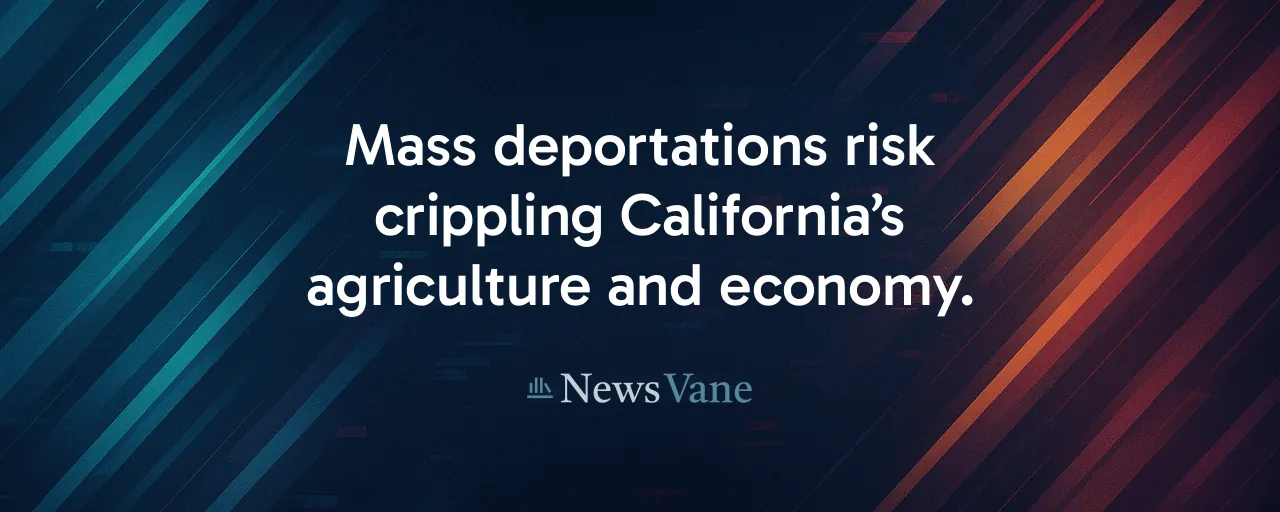Raids Upend Rural Communities
In California's Inland Empire, federal immigration raids have turned daily life upside down. On June 18, 2025, the state's First Partner visited Perris to meet farmworkers and families reeling from aggressive enforcement. The nonprofit TODEC, a lifeline for immigrants, shared stories of fear: parents avoiding grocery stores, children missing school, and some families facing tragedy. These raids, ordered by the Trump Administration, target undocumented workers but ripple across entire communities, leaving legal residents and mixed-status families in distress.
The human toll is stark. Grandmothers described hiding indoors, while others spoke of breadwinners lost to despair. TODEC's crisis hotline buzzes with calls from people too scared to seek help. Beyond the emotional strain, the raids threaten California's agricultural backbone, which feeds much of the nation. This moment demands a closer look at how enforcement, labor, and community stability intersect, and whether a better approach exists.
Agriculture Faces a Labor Crisis
California grows a third of America's produce, powered by an estimated 33 percent of crop workers who lack legal status. Raids in counties like Riverside and Fresno have led to 40-to-70 percent absenteeism in fields, with crops rotting unharvested. University studies warn of a potential $275 billion hit to the state's economy if mass deportations continue, alongside a $23 billion drop in annual tax revenue. Food prices may spike, affecting consumers nationwide.
Farm owners, caught in the crossfire, face impossible choices. Hiring legally is tough when E-Verify systems lag and guest-worker programs remain limited. Small growers, especially, struggle without reliable labor. Meanwhile, programs like California's Farm to School, which feeds millions of kids with local produce, rely on these workers. The raids expose a fragile system where enforcement and economic needs clash, pushing stakeholders to rethink solutions.
Mental Health Takes a Hit
The fear of raids empties fields and scars minds. Psychologists note that high-visibility enforcement triggers stress and anxiety, especially in children. Surveys show kids in mixed-status families skip school during raid surges, fearing separation from parents. Public-health studies link these zones to higher rates of depression and even worse birth outcomes. In extreme cases, families report suicides among those unable to work or facing detention.
California's Youth Behavioral Health Initiative, including free services like BrightLife Kids, aims to help. Yet, language barriers and mistrust limit access. TODEC's mental-health support and crisis hotline fill gaps, but demand outstrips resources. Addressing this trauma calls for policies that reduce fear and prioritize community trust, alongside enforcement that does not destabilize vulnerable groups.
A Tug-of-War Between Laws
The raids highlight a legal standoff. Federal immigration authority clashes with California's sanctuary laws, which limit local cooperation with ICE. State leaders argue these policies protect residents and preserve trust in public services. Meanwhile, federal agencies insist on enforcing borders, citing millions of unauthorized entries. This tension fuels lawsuits over data privacy and due-process rights during rapid detentions, leaving courts to untangle the mess.
Historically, California's dance with immigration policy has swung widely. The 1986 amnesty legalized millions but tightened employer rules. Raids surged in the early 2000s, then again from 2017 to 2021, each time met with state pushback. Today's escalation mirrors past conflicts but feels more intense, with broader economic and social stakes. Resolving this requires balancing federal mandates with state realities, without letting ideology drown out pragmatism.
Searching for Common Ground
Amid the chaos, glimmers of agreement emerge. Economists across divides warn that yanking workers out of agriculture, construction, and hospitality could choke growth. A modernized guest-worker visa program, with clear paths for seasoned farmhands, gains traction among farmers and policymakers. Targeting enforcement on serious offenders, rather than blanket sweeps, also finds bipartisan nod, as does bolstering mental-health services for kids caught in the fray.
Practical fixes face hurdles. E-Verify needs streamlining to avoid delays, and guest-worker programs need to ensure fair wages without exploitation. Small farmers could benefit from grants to mechanize, easing labor dependence. These steps will not erase tensions, but they offer a framework where enforcement respects borders, and communities and economies stay intact. The question is whether leaders can prioritize results over rhetoric.
Building a Resilient Future
California's farms and families stand at a crossroads. Raids have exposed fault lines: a food system reliant on vulnerable workers, communities gripped by fear, and a legal system stretched thin. Yet, the state's history of navigating immigration challenges, from the 1986 reforms to today's sanctuary laws, shows resilience. The path ahead lies in blending enforcement with humanity, ensuring laws are upheld without gutting the economy or traumatizing kids.
The alternative, escalating raids and division, risks a costlier toll on everyone, from field to fork.
The Inland Empire's story is America's story: a nation wrestling with borders, work, and compassion. Solutions will not come from digging in heels but from building systems that respect laws and lives alike. California's response could set a model, proving that even in tough times, balance is possible.
